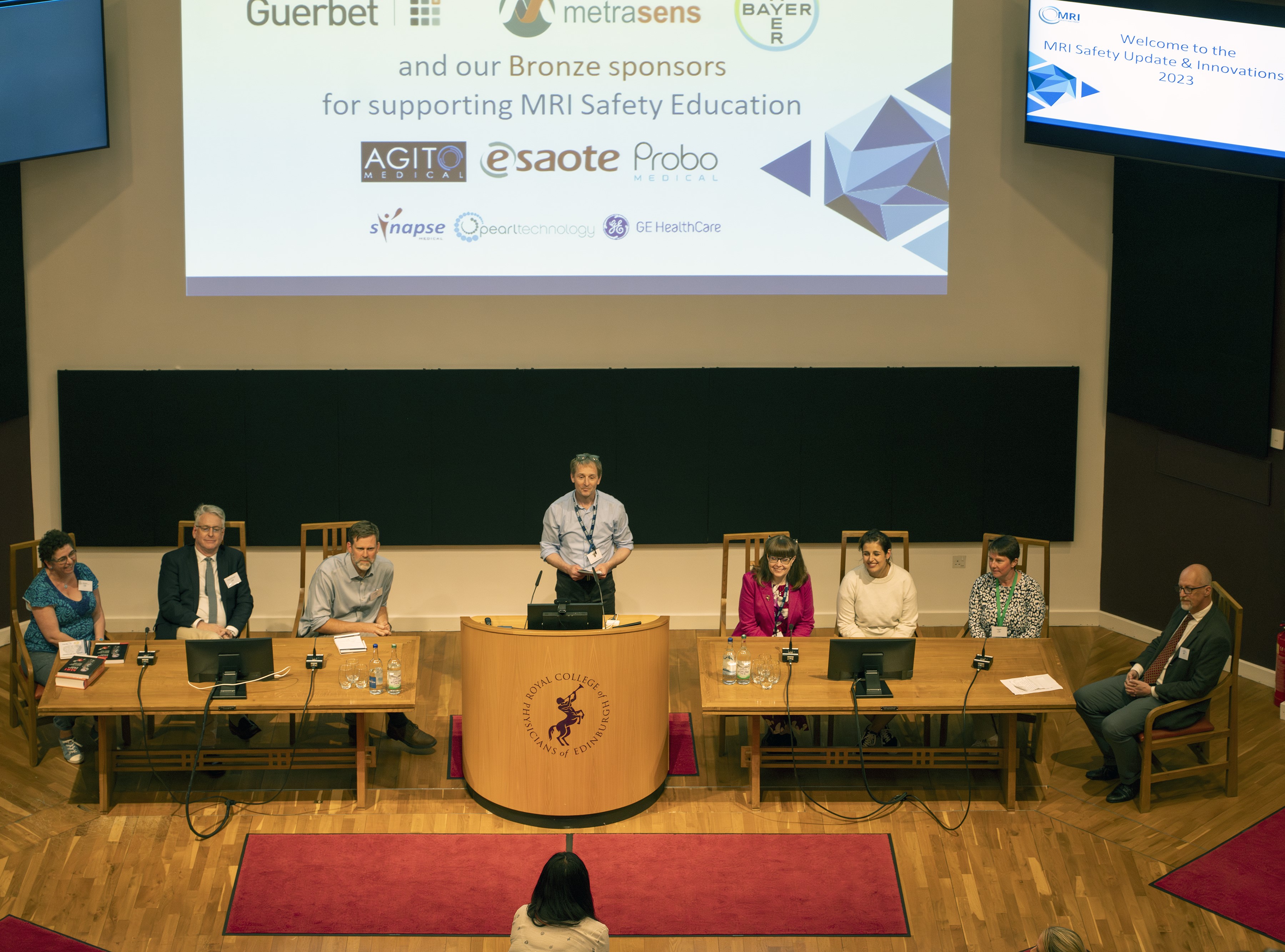
The Hybrid MRI Safety Update and Innovations Day held last year was an “outstanding” and “cutting-edge” event for the medical profession, according to one radiographer.
Evelyn Neilson, specialist radiographer at the Edinburgh Royal Hospital for Children and Young People, attended the event on 16 September in Edinburgh, hosted by the MRI Safety Matters organisation.
The event’s aim is to provide opportunities to learn from leading experts and foster collaboration between staff and industry partners alike, according to event organiser and founder of MRI Safety Matters, Barbara Nugent, as well as to realise the benefits from expanding networks of like-minded professionals.
Over eighty people attended in person and a further 300 accessed it online from across the globe.
'Cutting-edge topics and innovations'
Ms Neilson said: “MRI Safety Matters ran another successful hybrid MRI Safety Update and Innovations Day in autumn 2023 with an outstanding line up of speakers. Barbara Nugent welcomed everyone to Edinburgh for an interactive day of learning delivered by experts who shared their insights on cutting-edge topics and innovations.”
Toby Gilk, a US-based MRI safety advocate and architect, delivered the keynote speech: “Are we keeping pace with growing MRI safety risks?”
Mr Gilk explained that while MRI is “generally considered a safe imaging modality”, preventable incidents continue to occur. He said it is “vital” those working with MRI understand the hazards posed by electromagnetic fields and how to mitigate them.
'Safety has not kept pace with progress'
Remarkable progress has been made in MRI technology over a short period of time – increased magnet strength, better active shielding, higher spatial resolution – but “safety has not keep pace with this progress.”
Concerns have been raised that clinical pressures, increased throughput and time constraints have led to an increasing number of incidents and greater difficulty in maintaining safe systems.
Mr Gilk emphasised that the need for increased knowledge on how to scan implants and the provision of adequate time to implement appropriate safety checks has never been greater.
Talks throughout the day
Dr Karyn Chappell, a postdoctoral research radiographer at Imperial College London gave a talk on how magic angle directional imaging (MADI) could revolutionise musculoskeletal MRI. It included how her team is developing a dedicated low field scanner for knee imaging with a rotating magnetic field.
Ms Neilson added: “It was inspiring to hear the radiographers’ presentations. One of the many challenges Karyn's team encountered was a strange image artefact. This was found to be from a Texas radio station, broadcasting into London, on the same frequency as the scanner!”
There was radiotherapy input from the Royal Marsden’s MR Linac Operational Superintendent, Trina Herbert, who discussed implementing MRI safety in radiotherapy. Ms Herbert is an accredited MR safety officer (MRSO) and has been a “pioneer” in developing the use of MRI in radiotherapy treatment planning and helping to set up a training programme for the MR Linac team.
Rachel Watt, specialist radiographer and spokesperson for the British Association of Magnetic Resonance Radiographers, shared the latest guidance on MRI provision for Cauda Equina Syndrome and the importance of the ‘Getting it Right First Time’ national pathway.
Philippa Bridgen, lead advanced radiographer at King’s College London, provided an insight into working with high and low field MRI systems. Ms Bridgen is part of the pioneering UK group that performed the first scans using 7 Tesla (the scientific unit used to measure how strong magnets are) to image patients under general anaesthesia and neonates.
MRI safety considerations when scanning at high fields were discussed, as well as the transient effects experienced such as dizziness, vertigo and nystagmus.
Safety innovations
A “major highlight” of the day included the launch of the MRI Operator Notebook, an innovation first developed in the USA by MR technologist Alex Scherbakov. The notebook allows for the storing of technical data as well as device and implant details, links to safety guidance and MRI education, and custom templates for ease of use.
Barbara Nugent expanded the notebook’s content and ensured that it was extensively reviewed to create a resource suitable for scan operators in the UK and Europe.
Ms Neilson said: “It’s a useful tool that helps to organise workplace and scanning information. It is expected to be an essential resource for learners and professionals at all stages of their career.”
The notebook was provided complimentary to all in-person attendees, and several were given away in a prize draw for virtual and on-demand participants. The notebook will continue to be provided as a complementary item for all in person attendees at future MRI Safety Matters events and the latest edition is under development.
'A wonderful day of learning'
The event wrapped up with the “highly anticipated” Q&A session. The whole event was recorded, and all participants have on-demand access.
Ms Neilson said: “Whether you joined in person or virtually, it was a wonderful day learning about the latest updates on MRI safety and innovations."
Next year’s MRI Safety Update and Innovations Day will be held on 9 November 2024 at the Royal College of Physicians of London.
The MRI Safety Update and Innovations Day has been endorsed by the College of Radiographers for CPD Now learning outcomes, as listed on the CPD Certificate of Endorsement.
Visit MRI Safety Matters for more information.
(Image: Moderator Dr Ian Cavin presiding over the Q & A session, via MRI Safety Matters)
